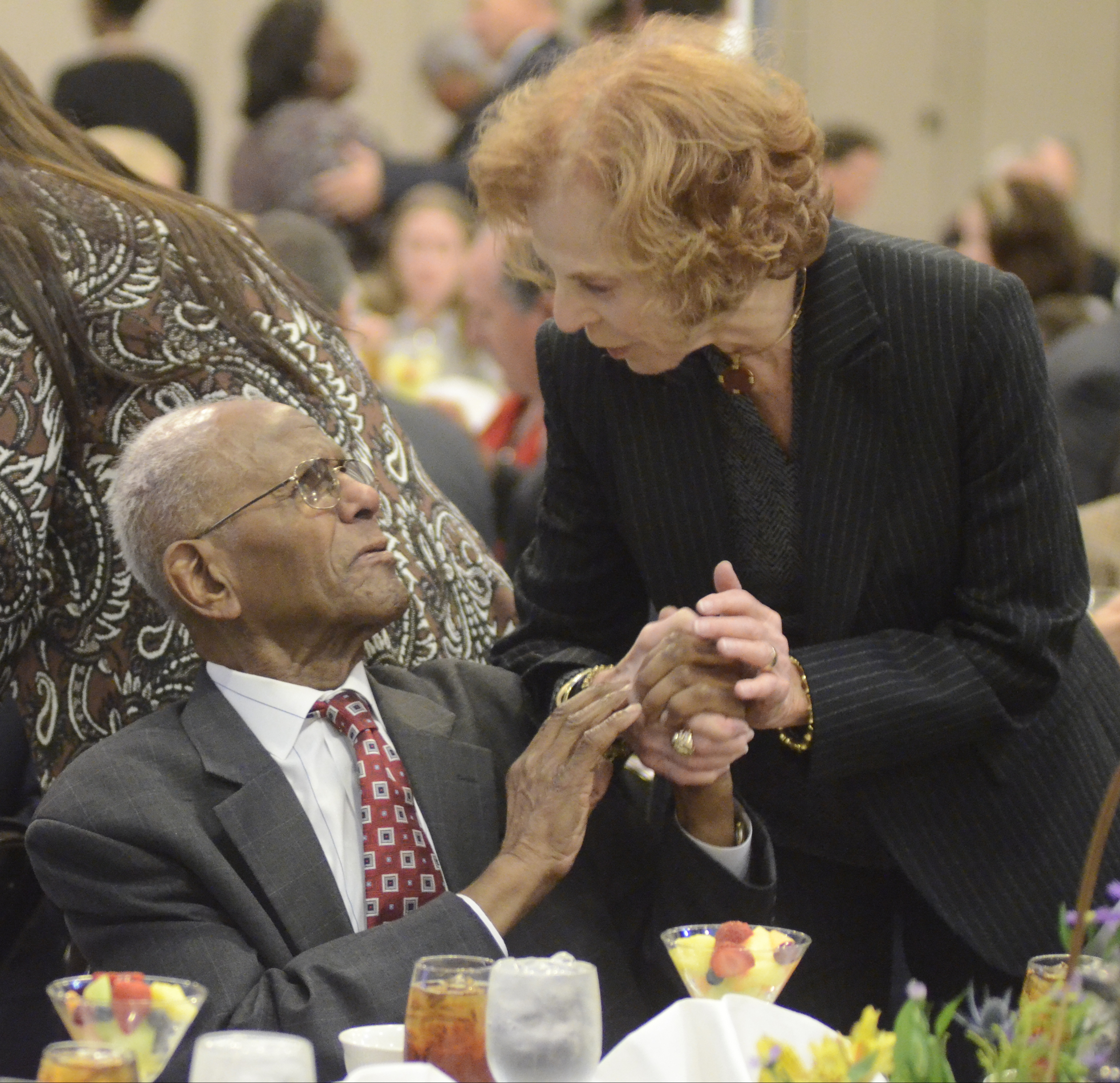A "Who's Who" of local history makers and civil rights leaders came together Wednesday to honor John Porter Franklin Sr., a former vice mayor of Chattanooga and the first black elected to the City Commission that preceded today's City Council.
"He paved the way for African Americans to get into the mainstream in Chattanooga, civicly and socially," City Councilman Moses Freeman said.
Franklin, owner of John P. Franklin Funeral Home and a former educator, received the Chattanooga History Center's ninth annual History Makers Award during a luncheon event. He was the first black president of the Tennessee Board of Education and served as the city's commissioner of education for 20 years.
The luncheon event generates between $30,000 and $50,000 a year and is the history center's only operations fundraiser of the year. With more than 560 attendees, this was one of the best-attended luncheons in the event's nine-year history, said Marlene Payne, deputy director of the Chattanooga History Center.
History Center Executive Director Daryl Black gave a history of blacks and government in Chattanooga to explain Franklin's impact.
Black fire companies, police officers and businessmen were plentiful in the 1870s and 1880s, Black said. There were even black leaders in the local Republican Party, but around that time Jim Crow laws began to take hold in Chattanooga and around the nation. By 1911, a new city charter was put in place under which politicians were elected at large. That form of government nearly silenced the voices of blacks in politics, Black said.
No blacks were elected to the City Commission after 1911.
It was that system that Franklin and the people who helped him challenged in the 1970s, Black said.
WTCI-TV 45 created a video that illustrated Franklin's history, and Chattanooga NAACP leader James Mapp recalled in the film how black leaders came to select Franklin for political office.
In 1955 two blacks ran against each other for the City Commission. Neither won, but both came within 250 votes of winning. If they had worked together, one could have won. Black leaders learned from that, Mapp said.
By the late 1960s the Rev. Paul McDaniel and other leaders formed the Unity Group with the goal of getting a black representative in political office.
The group agreed funeral home owner and educator John P. Franklin was the man for the job.
"He was brave, courageous, a visionary and so congenial," Freeman said. "He was the right person to present to an apprehensive, predominantly white community."
Still, Freeman said, "It was an uphill battle."
Other black leaders wanted to groom Franklin to be the politician they thought he should be, but Franklin had his own ideas.
"He attempted to be a diplomat and find ways of working together," City Councilman Yusuf Hakeem said.
City Councilman Ken Smith said what Franklin did to open doors "was nothing short of remarkable."
After the video, Franklin stepped to the podium for his award.
He recalled being in the audience in 2013 to applaud Ruth Holmberg receiving her award. When he got the call himself this year, "I could hardly believe it," he said. "I felt unworthy."
He said people give him credit that he is not due. And he could not have achieved any success without the support of the people around him, Franklin said.
"No man is an island," he said. "I'm just thankful."
Franklin McCallie, an advocate for racial equality, commended Franklin during his prayer over the luncheon.
"We are here today to honor a man who blessed us with his commitment to Chattanooga," he said. 'Well done, friend. Well done, commissioner. Well done."
Contact staff writer Yolanda Putman at yputman@timesfreepress.com or 757-6431.

